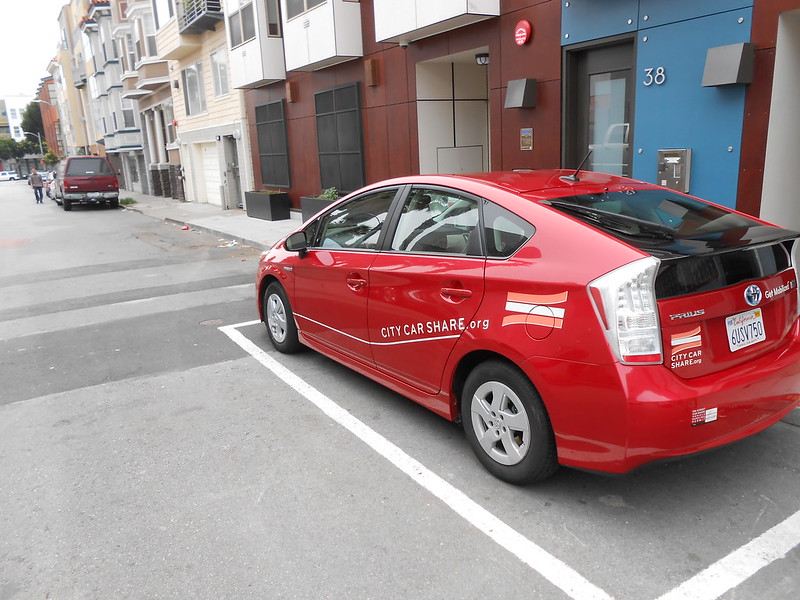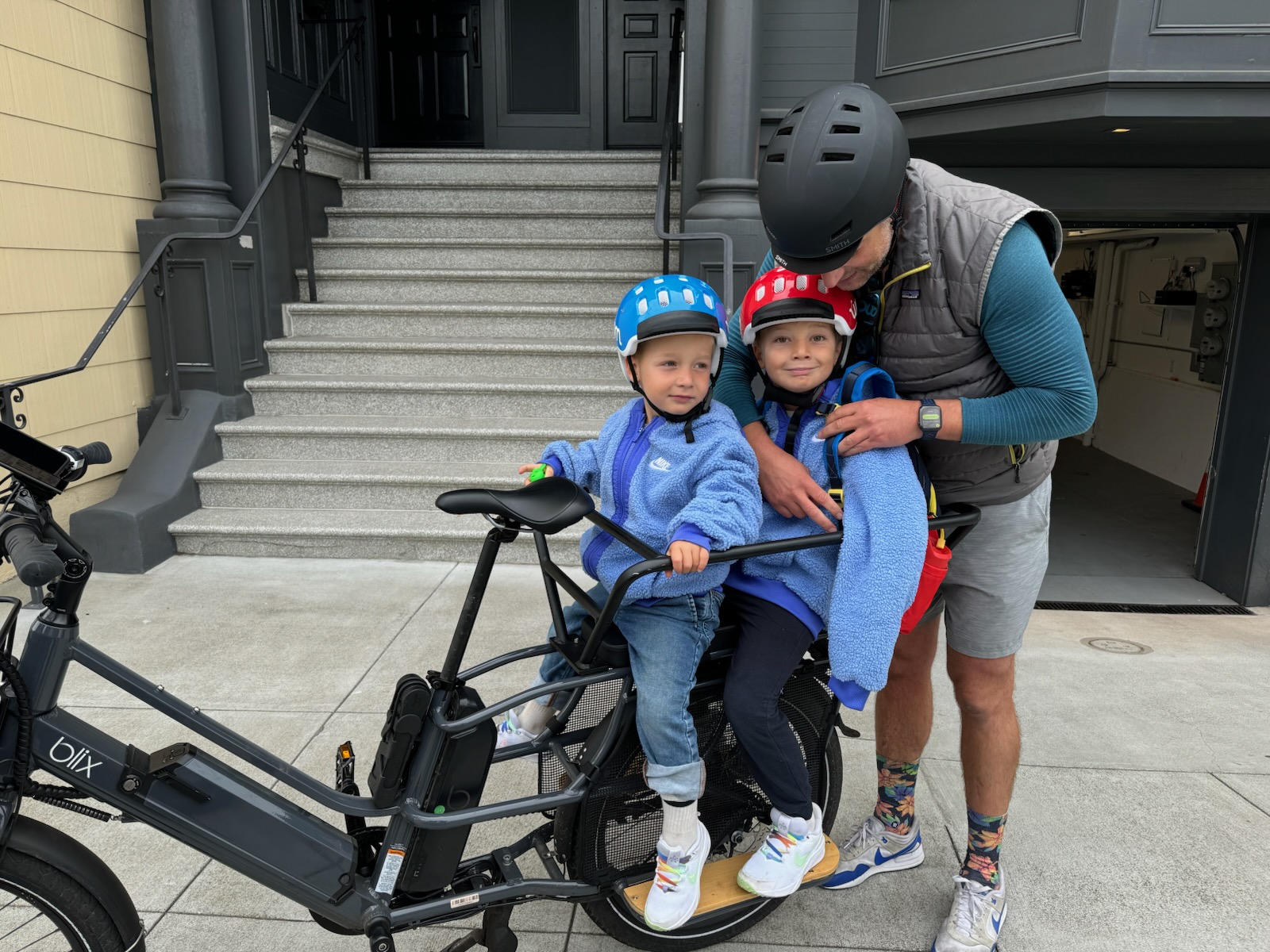
The SFMTA's endeavor to reserve on-street car parking spaces for car-share vehicles has yielded complaints from some car owners who, ironically, decry the "privatization" of space currently used to store private cars.
These folks don't seem to acknowledge the extensive research showing that each car-share vehicle replaces, on average, nine to 13 privately-owned cars. They should be embracing the arrival of a program that provides a convenient alternative to car ownership, allowing some of their neighbors to sell infrequently used cars, and ultimately make more parking available.

But the greater point that some folks seem to be missing is this: No use of public street space is more "private" than dedicated storage of private individuals' automobiles. To decry converting comparatively few of these spaces to welcome a much more efficient form of auto storage -- making each space useful for dozens of people, rather than one or two -- is absurd.
Yet that's what Calvin and Michelle Welch argue, in flyers they distributed that protest two on-street car-share spaces in the Lower Haight, as Hoodline recently reported. "It would privatize a shared, currently free, scarce public resource making it available only to paid members of a car share program," the Welches wrote. (It's worth noting that Calvin Welch is a longtime activist who opposes the construction of new market-rate housing.)
Our societal blind spot tends to make it easy to forget that the vast majority of street space has been given over to moving and storing cars, many of them owned and used by just one person each. San Francisco's 275,450 on-street parking spaces would stretch, lined end-to-end, longer than the California coastline. Ninety percent of this prime real estate is free to use at all times of day.
The privatization of the streets already happened in the early part of the last century. Today, there is no private use of public space more widespread than free car storage.
On the other hand, each of the 12 on-street car-share spots that exist in SF today are paid for with car-share member fees, and serve 20 individual users on average. Some serve 40. It's hard to imagine that any free street parking spot turns over more than a few times a day. Car-owning neighbors regularly leave angry notes on cars that sit longer than the legally-allowed 72 hours.
Those stats are from Brent O'Brien of the non-profit City CarShare, which spearheaded the on-street car-share pilot program with the SFMTA. City CarShare is one of three organizations which will get parking spaces in the program. The organizations will pay between $50 to $225 per month to use spaces that car owners currently pay nothing for.
Most of the users surveyed who use the 12 on-street spots say that, without nearby car-share access, they would probably buy their own cars, O'Brien told the SFMTA Board of Directors at a meeting this week.
Bill Bowen, a right-wing author and proponent of the "Restore Transportation Balance" ballot initiative, told the SFMTA Board that his coalition sees the program as "losing 450 spaces, with no thought about how to add that back anywhere." (The SFMTA is currently moving forward with 450 car-share spaces, the first half of the 900 planned.)
"Many of our members feel it's inappropriate to rent public space, which is much in demand and much-needed, to private companies," Bowen said.
Public space is much needed? No doubt about that. Unfortunately, huge swaths of it have been given over to car parking, in its most private and least efficient form. San Franciscans have recognized this and embraced the conversion of parking spaces into parklets, which are paid for by their hosts. Speaking of which: Bowen is apparently unaware that fees are also paid to rent public space for uses like loading zones, film locations, and festivals.
Several members of the SFMTA Board identified themselves as car-share users, including Vice Chair Cheryl Brinkman, who said she doesn't own a vehicle. She pointed out that the assertion that only private car owners have the right to use curb space dismisses those who go car-free, to the benefit of the greater public. And, she noted, San Francisco's curbs are already plagued with driveways which give garage owners free and exclusive use of curb space.
"Even if you don't own a car, every citizen has the right to use that curb space," said Brinkman. "Anything that we can do to help people live in this city without owning a personal car is a win for all of us. Whether we own a car, rent a car, bike, walk, or take a bus, fewer cars is a good thing."
The next batch of 36 on-street car-share parking locations is up for preliminary approval at an SFMTA engineering hearing tomorrow at 10 a.m. at City Hall. You can voice your support for spots on the agenda in person or by emailing sustainable.streets@sfmta.com. See the latest edition of the map of 450 proposed car-share spaces [PDF] on the SFMTA website.




